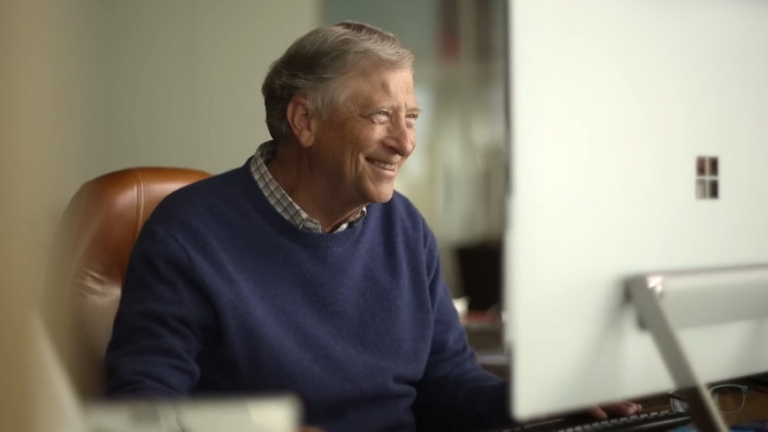Bill Gates envisions the future: The tech giant talks AI, misinformation and more
Bill Gates envisions the future: The tech giant talks AI, misinformation and more
This is a show about our future. Being able to use AI well is now more important than understanding Excel or the internet. I wrote a text to my son using Gen Z slang. Hey, family. What do you like? How about a conversation about, one generation from now, we’re going to not have to work so much? It’s great that it’s started, because it’s not something that technologists understand better than anyone, it’s something that goes to the core of religious values, philosophical values, it’s kind of like nirvana. But will we be able to manage it well? And how fast will it get there by a certain point? Will AI be competent enough to build better AI? AI will build better AI, which will build even better AI, which will build even better AI. In this episode, we talk about the big benefits that will be the dominant theme over the next 10 to 20 years. But we also need to rethink how we spend our time when jobs are not so scarce. The debate about whether we’ll have enough teachers and doctors, which are incredibly scarce even in wealthy countries. Think about something like mental health. It would be really great to address those shortages and think about how do we treat older people better, what should the class size be, can we make it 15 or 10? And what should we leave for humans? You don’t want to watch a robot play baseball, right? I mean, what is the boundary you say? Anything that machines can do is great, but these other things are probably very social activities, intimate things. Where should we keep those jobs? It’s getting harder to write science fiction. Conspiracy theories have always been there. We underestimate the creativity of Americans. Bill Gates is part of a reptilian race that includes Tom Hanks and Lady Gaga. I think every country has a hard time finding that boundary. The United States is a difficult one, because, you know, we have this concept of the First Amendment. So what are the exceptions, like yelling fire in a theater, and so on. And it could get worse because online you’re anonymous. I think over time, with things like deepfakes, most of the time you’re online, you want to be in an environment where people are really identified. So it’s not about people saying whatever they want, it’s about being connected to a real-world identity that they can trust. And the idea of Providence sending me this email was that we have to have more conscious systems and actions. Who said it, who made this? We have to give up on hydrocarbons almost completely. I have a group called Breakthrough Energy that was very involved in the IRA bill in the US, which is a tax credit to accelerate the deployment of existing and new technologies. And we’re consulted as experts on what are the policies to advance the grid, what are the policies to allow these things instead of slowing them down, how does hydrogen fit into this, and so on. So we’ve received a lot of philanthropic funding from me and other donors and have been a resource to work on policies to advance this. We’re not meeting the high expectations of activists, like staying below 1.5 degrees. We’ve made enough progress that people shouldn’t despair. I mean, we need to keep this work going. And, yes, we’re going to have some negative impacts that will force us to adapt. I could tell activists that things are a little better than they expect. Their enthusiasm definitely influenced me to try harder. It was amazing to see how passionate they were, and of course they made the issue visible. I want it to be a bipartisan issue in the United States. Fortunately, in most countries, the debate is about how to solve climate change, not whether it really matters. The desire to eradicate malaria in my lifetime is a tougher constraint. I would be disappointed if global health issues didn’t get big viewership, because the majority of the time I spend on resource issues is important alongside the climate change issue. The things I work on the most, like malaria deaths, are a big focus of that. Half a million children dying from malaria. I’m trying to think smartly about how to keep everyone engaged and keep wealthy countries involved in helping.

